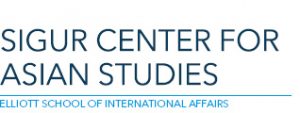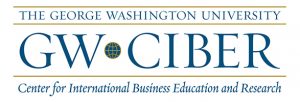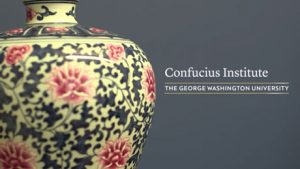Month: November 2014
7th Annual Conference on U.S.-China Economic Relations and China’s Economic Development
G2 at GW 2014
Friday, November 21, 2014, 8:45 am
Lindner Commons, Suite 602
Elliott School of International Affairs
1957 E St. NW, Washington, D.C. 20052
The U.S.-China relationship is now second to none in importance for international economic relations and policy and accordingly is a major focus of IIEP. The centerpiece of this initiative is our annual Conference on China’s Economic Development and U.S.-China Economic and Political Relations (or the “G2 at GW”), which as become one of the premier events of its type. For information on previous conferences, see our signature initiatives page.
Schedule of Events
November 21, 2014
8:50 – 9:00AM Welcome and Overview of the Conference
9:00 – 10:30AM Session 1: Economic Issues in China
This session will examine economics of China’s domestic economy and linkages to the international economy via trade and investment.
- Eswar Prasad, Cornell, “The International Role of the RMB”
- Derek Scissors, American Enterprise Institute, “Two China Development Scenarios for Investment in the US”
- Scott Kennedy, Indiana U., “Multinationals Surviving and Thriving in China”
10:30 – 11:00AM Coffee Break
11:00 – 12:30PM Session 2: China’s Changing Political Landscape
This session will examine the new political environment in China as the new leadership attempts to maintain legitimacy in the midst of a slowing economy and the advance of new social media technologies.
- Bruce Dickson, GWU, “Economic Growth and Political Trust”
- Jessica Teets, Middlebury, “Civil Society and Consultative Authoritarianism in China”
- Steve Balla, GWU, “The Internet, Governance, and Political Participation in China”
12:30 – 2:00PM Lunch and Keynote
- Jianhai Lin, Secretary of the International Monetary Fund, “Changing Global Economic Landscape: a Renewed Need for Multilateralism.”
2:00 – 2:20PM Coffee Break
2:20 – 3:50PM Session 3: Environmental Outcomes in China with Global Implications
- This session will examine environmental issues in China, which because of the global connectedness, is likely to have implications for the US and the world.
- Joanna Lewis, SFS Georgetown, “Clean Energy and Climate Change in China”
- Zhongmin Wang, Resources for the Future, “Assessing the Design of Three Carbon Trading Pilots in China”
- Judy Shapiro, American University, “Evolving Strategies of Chinese Environmental NGOs”
An archive of all previous Annual Conferences on China’s Economic Development and U.S.-China Economic Relations is available here.
For more information, please contact Kyle Renner at iiep@gwu.edu or 202-994-5320.
Co-sponsored by:
Human Rights, Accountability, and Internet Governance: A Panel Discussion
Read the event summary here
Monday, November 17, 2014
12:30 to 7:00pm – Reception to Follow
Elliott School of International Affairs
Lindner Commons, 6th floor
1957 E Street NW
Washington, DC 20052
Change is coming to Internet governance. But change is scary. It involves compromises, and may yield a less accountable approach. Moreover, the US Government wants any changes to protect human rights, Internet openness and stability, and the multistakeholder model. This free luncheon seminar considers how recent proposed changes in Internet governance will affect human rights online and how Internet governance institutions and processes might be made more accountable to netizens.
2nd Urbanization and Poverty Reduction Research Conference
Wednesday, November 12, 2014
8:30am to 8:00pm
World Bank Headquarters, Washington, D.C
This conference hosted by the World Bank, George Washington University (Institute for International Economic Policy), and the Growth Dialogue brings together academics and development practitioners to present and discuss the challenges of urbanization in developing countries.
For more information about this conference, click here.
USAID BASIS AMA CRSP/I4 Index Insurance Innovation Initiative 2014 Technical Committee Meeting
Cosponsored with University of California – Davis
Thursday and Friday, November 6-7, 2014
12:00 to 5:15pm
George Washington University, Washington DC
This event was a gathering of researchers and stakeholders involved with the Index Insurance Innovation Initiative (I4) at UC Davis. Presentations at this event came in three primary types:
- New Project Presentations
- Project Updates
- Research Paper Presentations.
These different presentations reflect the different stages these projects are at in implementation, and are meant to keep stakeholders apprised of current project status and recent developments, as appropriate.
Presentations:
- New Project Presentation: E-Warehousing for Smallholder Farmers
Craig McIntosh, University of California San Diego
Lorenzo Casaburi, Stanford University - Project Update 1: Complementarities of Training, Technology, and Credit in Smallholder Agriculture: Impact, Sustainability, and Policy for Scaling-up in Senegal and Uganda
Stephen Smith, George Washington University - Project Update 2: Demand and Supply Constraints to Improved Sorghum Technology Adoption and their Gender-Differentiated Effects in Burkina Faso
Andrew Dillon, Michigan State University - Research Paper Presentation: Signals, Similarity and Seeds: Social Learning in the Presence of Imperfect Information and Heterogeneity
Emilia Tjernstrom, University of California Davis
Chris Udry, Yale University - New Project Presentation: Agglomeration Payments and Conservation Agriculture in Malawi
Gregory Parkhurst, Weber State University
Stephen Smith, George Washington University - Project Update 3: Household-Level Impacts of System of Rice Intensification (SRI) in Haiti: An SRI intervention with training, insured credit, and coordination by irrigation bloc
Travis Lybbert, University of California Davis - USAID Relations and Data Sharing
Lena Heron, USAID - Panel Presentation: BASIS Seed Awards Communication, Search, and Mobile Phones: A Telephone Directory Intervention in Tanzania
Jenny Aker, Tufts University - Rural Livelihoods and Institutional Reform in Small-Scale Fisheries in Tanzania
Yaniv Stopnitzky, University of San Francisco - A Quasi-Experimental “Post-Mortem” Study of a Discontinued Insurance Product in Haiti
Aaron Isaac Baum, Columbia University - Project Update 4: Tailoring Contract Farming to Smallholders: Experimental Evidence on Enrollment Impact, Insurance Provision, and Communication Technologies
Lorenzo Casaburi, Stanford University - Project Update 5: Promoting Improved Production Technologies among Smallholders in Ghana via Interlinked Credit and Index Insurance Contracts
Mario Miranda, Ohio State University - Research Paper Presentation: A Multiple Interventions Approach to Increasing Technology Adoption: Evidence From Mexico
Xavier Gine, World Bank
Andrew Dillon, Michigan State University - New Project Presentation: Evaluating the effect of site-specific soil information on farmer input choices and the relationship between poverty and soil quality
Cheryl Palm, Columbia University
Michael Carter, University of California, Davis - New Project Presentation: Evaluation of the Welfare Impacts of a Livestock Transfer Program in Nepal
Nick Magnan, University of Georgia
Alain de Janvry, University of California Berkeley - New Project Presentation: Combining technological and institutional innovations for risk management and risk coping by smallholder farmers in Bangladesh
Alain de Janvry, University of California Berkeley
Travis Lybbert, University of California Davis - Project Update 6: Disseminating Innovative Resources and Technologies to Smallholders (DIRTS) in Northern Region, Ghana
Chris Udry, Yale University - Research Paper Presentation: Insights from Behavioral Economics on the Design of Agricultural Index Insurance
Discontinuity of Preferences and Insurance Demand: Results From a Framed Field Experiment in Burkina Faso
Ex-ante Impacts of Agricultural: Evidence from a Field Experiment in Mali
Michael Carter, University of California, Davis
Xavier Gine, World Bank



